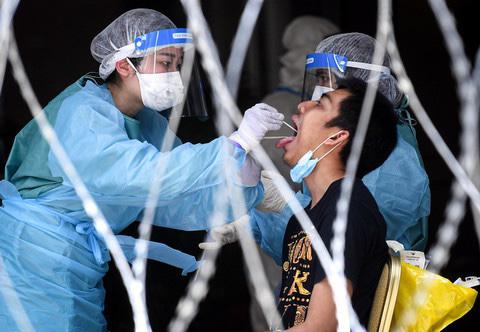KUALA LUMPUR, June 9 — Covid-19 patients generally do not transmit the virus if they do not show symptoms, according to a World Health Organization (WHO) official, who touted a focus on detecting and isolating symptomatic people.
WHO’s statement raised uncertainties on researchers’ concerns that the disease could be difficult to contain due to asymptomatic transmissions, since initial evidence from the earliest outbreaks showed the virus could transmit between persons even if the virus carrier was without symptoms, as reported by CNBC.
However, a WHO official now says that although asymptomatic Covid-19 spread can happen, it is not the main mode of transmission.
“From the data we have, it still seems to be rare that an asymptomatic person actually transmits onward to a secondary individual,” Dr Maria Van Kerkhove, head of WHO’s emerging disease and zoonosis unit, reportedly said at a news briefing from the United Nations agency’s Geneva headquarters.
She further added that government responses should focus on detecting and isolating infected individuals with symptoms, and contact-trace from there.
Dr Kerkhove also recognised that some studies have found asymptomatic or pre-symptomatic transmissions of the coronavirus in nursing homes and in household settings. However, she added that more research is needed to “truly answer” the question of whether the virus can spread widely through asymptomatic carriers.
“We have a number of reports from countries who are doing very detailed contact tracing,” she reportedly said. “They’re following asymptomatic cases. They’re following contacts. And they’re not finding secondary transmission onward. It’s very rare.”
Dr Manisha Juthani, an infectious diseases specialist and associate professor of medicine and epidemiology at Yale School of Medicine, told CNN on Monday: “Many people with Covid-19 who may appear to be asymptomatic actually could just have mild or atypical symptoms — or they could be pre-symptomatic.”
Dr Juthani did not participate in the media briefing and has not reviewed the unpublished data that Dr Kerkhove cited. Dr Juthani reportedly said that those findings from the unpublished data were not necessarily inconsistent with other assessments related to how pre-symptomatic transmission of Covid-19 is possible.
A study published in April found that the shedding of the coronavirus from carriers, which is when they have the ability to infect others, could begin around two to three days before the symptoms appear, as cited by CNN.
In addition to that, the US Centers for Disease Control and Prevention in its planning scenarios estimated that 40 per cent of Covid-19 transmission occurs before the people feel sick.
“These patients weren’t asymptomatic,” Dr Juthani reportedly said. “They were spreading disease before becoming symptomatic.”
“These findings suggest that if we quarantine and contact trace symptomatic people, we can make a significant dent in the pandemic,” she added.
Babak Javid, a principal investigator at Tsinghua University School of Medicine in Beijing and consultant in infectious disease at Cambridge University Hospitals, in a written statement distributed by Science Media Centre on Monday said that making the distinction between asymptomatic and pre-symptomatic infections remains important, but also “paucisymptomatic infections”, which refers to those presenting with atypical or very mild symptoms.
“Detailed contact tracing from Taiwan as well as the first European transmission chain in Germany suggested that true asymptomatics rarely transmit. However, those (and many other) studies have found that paucisymptomatic transmission can occur, and in particular, in the German study, they found that transmission often appeared to occur before or on the day symptoms first appeared,” Javid reportedly said in the statement.
“Other data available, from studies in several continents confirming that pre-symptomatic transmission does occur, would suggest that being well does not necessarily mean one cannot transmit SARS-CoV-2,” Javid added.








